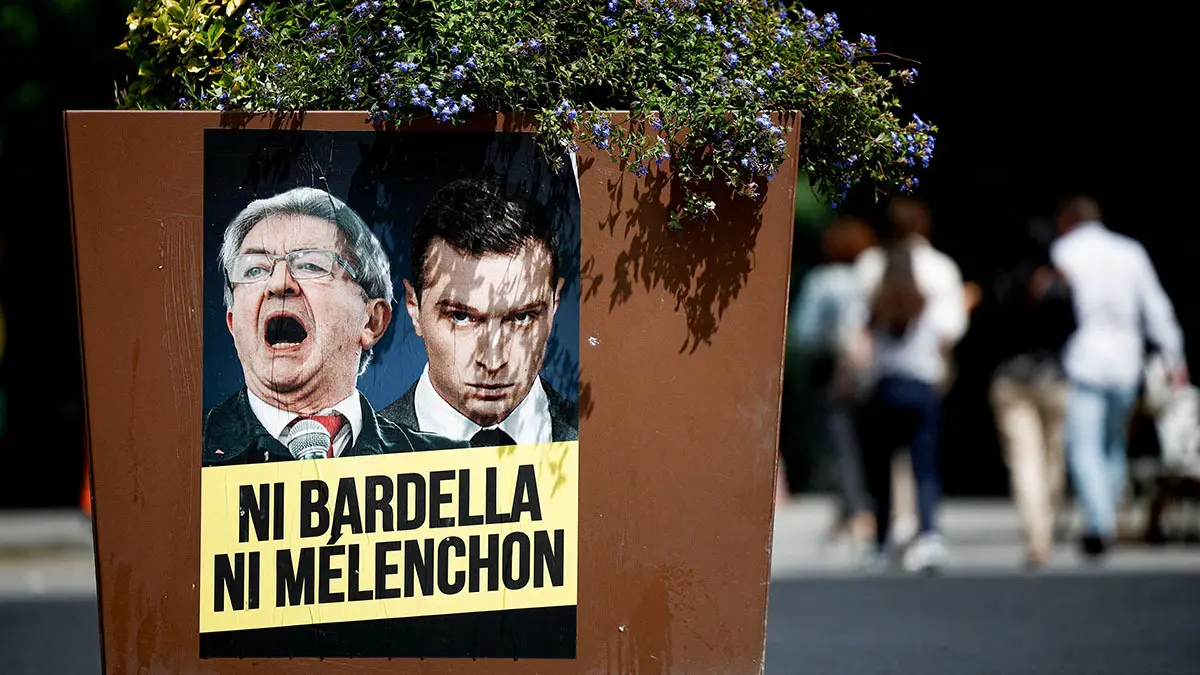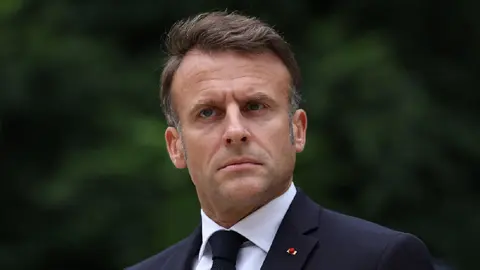Walls, sanitary cordons and electoral mathematics, or when two and two never equal four

But the French elections have starkly revealed that the polarisation of the country, as in many other EU-27 countries, is translating into a feeling of growing frustration and weariness among those who are condemned to defeat by the electoral system, while seeing results that mathematically give them victory.
It didn't take Jean-Luc Mélenchon, leader of the far-left La France Insoumise (LFI), to claim the post of prime minister for the NFP. The Popular Front is a motley mosaic of socialists, communists, ecologists and Trotskyists, which makes up the largest bloc of deputies in the National Assembly, with 182. In total, just over 7 million votes, 27% of the total votes cast, at a rate of 48,000 per seat.
In second place came the Ensemble, the so-called presidential bloc, with 6.3 million votes, or 23% of the total, and 168 seats. And disappointment in the RN, which "only" reached 9 million votes, 38% of the electorate, for a more than meagre and insufficient 143 seats, i.e. at a rate of 100,000 votes per seat.
The generic slogan of "erecting a barrier" against the extreme right deliberately ignores the fact that this generic expression has been embraced by more than a third of French people, who, in addition to personal frustration, are beginning to harbour serious doubts about the democratic system, which obviously does not give them the same chances of gaining legal and legitimate access to power as other options.
Ever since the British trade unionist George Howell first uttered the expression "one man, one vote" in the 19th century, although it is only on record as having been used in the US Supreme Court in 1964 in the Reynolds v. Sim case, democracies have been shaping different electoral systems to ensure stable majorities and, above all, that power is legitimately in the hands of majorities, albeit with respect for minorities.
However, the various adjustments made in each country have led to notable and ostensible inequalities. The Spanish case is paradigmatic, where the nationalist minorities enjoy a plus of representation of constitutional origin, but which, in practice, has turned them into the most powerful political force, to the point of making Pedro Sánchez's permanence in power depend on just seven of their votes.
The United Kingdom itself wields mathematical "inaccuracies" when in the last elections it gave Nigel Farage's Reform UK only five seats for its 15% of the vote, while giving the Liberal Democrats, with 15% of the vote, 71 seats in the Commons.
The accumulation of frustrations of "deceived" voters is permeating the electoral body, to the point that opinion pollsters are observing a growing and alarming disaffection with democracy. The Spanish CIS itself has found that one in four young people aged between 18 and 34 "do not consider democracy to be preferable to other forms of government".
This is a complete disproval of Churchill's memorable statement that 'democracy is the worst political system, to the exclusion of all others'. The reality for the younger generation is that democracy does not guarantee that their problems will be solved, while they observe that successive political leaders who govern them are shying away from the serious general problems common to the EU as a whole, such as insecurity, irregular immigration and national identity, for example. Three gigantic elephants in the room that they pretend not to see, provoking feelings of impotence in a large majority of citizens and of weariness and anger in those who, thanks to walls and cordons sanitaires, are increasingly convinced that, whatever legal electoral tricks or tricks of the trade, they will never be allowed to achieve power and democratically put their programme into practice.
Moderation, well-considered centrism, was a guarantee of the necessary balance for the stability and progress of society. Failing to respond to this expectation, let alone openly taking the side of extremism, even if it has the blessed label of the left, opens the way to greater polarisation and the temptation to delve into populism and seek alternative solutions to impotence will eventually take hold.
Macron's risky move to call a general election to cover up his failure in the European elections, doubled by his call to prevent the expected landslide victory of the RN, has led to a deadlock in the National Assembly, but with a Popular Front as the largest formation, led by a radical party, La France Insoumise, whose leader, in the words of the editorial of a left-wing newspaper like Le Monde, "is directly a public danger".
After the first moments of exhilaration, relief, euphoria and frustration, depending on who and what, it seems clear that mathematics is not what it used to be, especially when handled by politicians.



